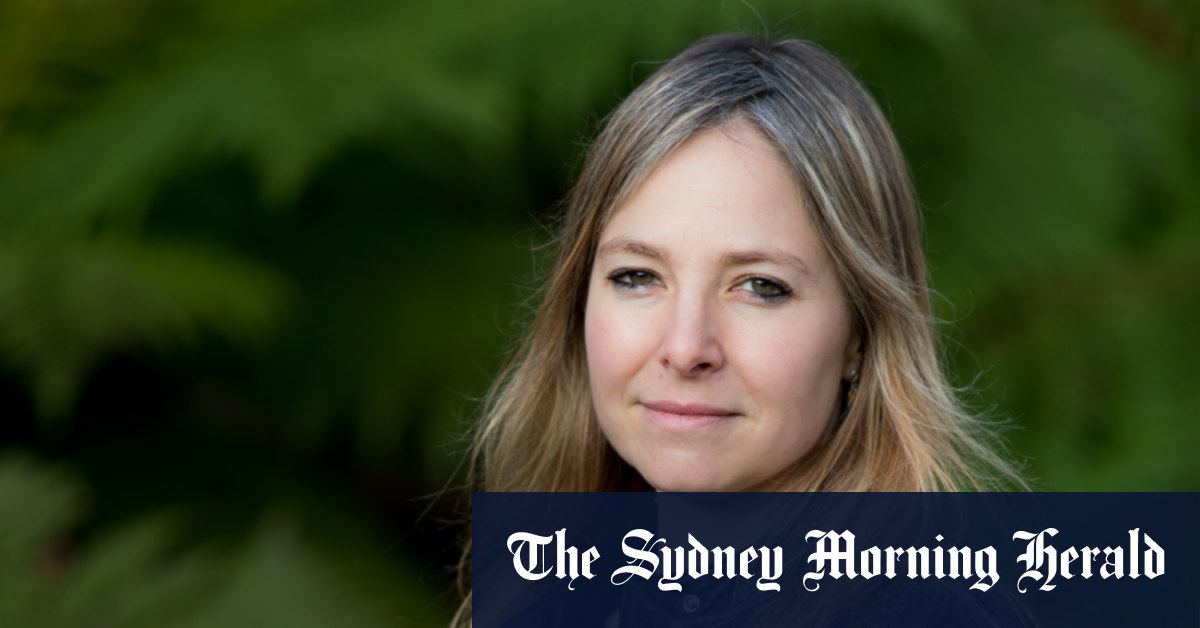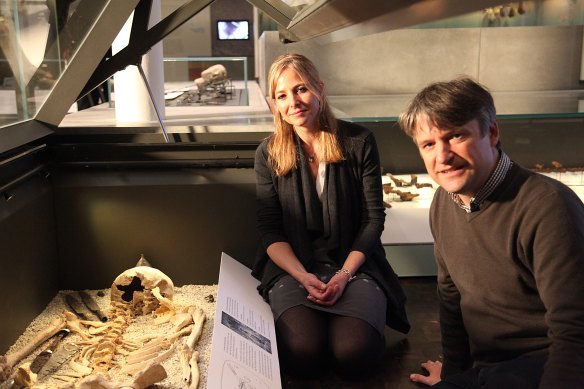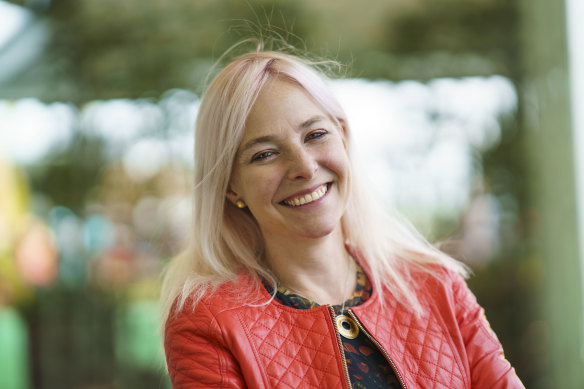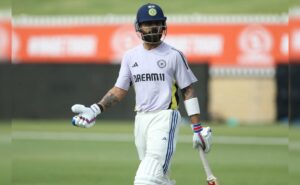
It’s barely gone 7am in the UK when Professor Alice Roberts joins me on Zoom, and within minutes she’s reeling off extraordinary facts about evolutionary biology and life’s biggest questions. Not that I should be surprised: Roberts, an academic, broadcaster and author who specialises in human anatomy, evolution, archaeology and history, is your genuine polymath. Even at 7am.
For years, she’s also specialised in sharing her knowledge with mainstream audiences through her many TV roles, on documentaries including Time Team, Digging for Britain and Coast (just a handful of the 100 or more she’s appeared on) and in her bestselling books, such as The Incredible Unlikeliness of Being and Ancestors, this year’s Crypt and her first children’s book, 2023’s Wolf Road.
In 2012 the University of Birmingham appointed her as Professor of Public Engagement in Science, and in 2020 she won the inaugural Royal Society David Attenborough Award for outstanding public engagement with science; Roberts is adept at making complex ideas accessible. Her evident enthusiasm for all things historical certainly helps.
This month, she’s in Australia with her live show From Cell to Civilisation: Humankind, Genetics, and Archaeology, in which she will aim to answer some of humanity’s biggest questions: who are we? Where do we come from? And what does it mean to be human? Questions that historically, humanity has tried to answer, after a fashion, with religion and philosophy.
She’s done live shows before, usually around her book releases, but this one, she says, is more theatrical. “I’m really excited for this one because it’s a chance to really bring this subject matter alive, in a very exciting way visually and theatrically,” she says. “It’s definitely not a lecture.”
It does though, seem wildly ambitious – to cover the emergence of the human species and the story of life on Earth in one evening? “Just a bit ambitious,” Roberts agrees with a laugh. “There’s lots of science, but if it was going to be a show about the flowering of human civilisation, I thought I may as well go large.”
She says she was inspired by similar live tours that her friend, physicist Brian Cox, has toured. “He does incredible stage shows, and this one is produced by the same company. Brian does the origins of the universe and I thought well, I’m not going to be quite that ambitious, I will ‘just’ do the origin of life on Earth and the human species.”
As well as tracking the evolution and connectivity of all living things from the first spark of life more than three billion years ago, and examining some of Earth’s earliest civilisations, the show features some brand-new findings about evolution, which Roberts describes as “incredible”.
“With both the study of human evolution, and evolution more generally, it almost seems as though, ‘Oh, well, you know, Darwin and Wallace – let’s not forget Wallace – kind of cracked how evolution worked’. But Darwin’s book On The Origin of Species – people only ever just say that, but the book is actually On the Origin of Species by Means of Natural Selection. They cracked how evolution worked, but actually, we are still learning.”

Professor Alice Roberts with Time Team’s Matt Williams.
When Darwin wrote The Descent of Man (“which always annoys me because obviously, women are in the results”, Roberts says), there were no recognised human fossils, so he suggested that our earliest ancestors were probably from Africa.
“And he was right. Because now we’ve got all this incredible fossil evidence,” she says. What Darwin couldn’t have known though, was the origins of the expansion of Homo sapiens across the world.
The last time Roberts was in Australia, in 2008, she was filming the BBC documentary The Incredible Human Journey, for which she and the program’s team were following up then-new research suggesting that humans had reached Australia before they had made it to Europe.
“We went out on a bit of a limb, but this research was based on archaeological finds from a couple of Northern Territory rock shelter sites that had obviously been used by people, and the ochre pigment [there] was dated to 60,000 or 65,000 years ago,” Roberts says. “There were some archaeologists saying ‘rubbish … there’s no way modern humans could have got to Australia by that point’ – it was contentious because modern humans didn’t get to Europe until 50,000 years ago. In 2008, there were only a couple of bits of evidence, but I felt that was enough to depend on.”
Since then, she says, there has been more and more evidence, from both archaeological finds and genetic research.

Professor Alice Roberts and her team “went out on a bit of a limb” with their speculation about human settlement in Australia.Credit: Getty Images
TAKE 7: THE ANSWERS ACCORDING TO ALICE ROBERTS
- Worst habit? Licking my paintbrushes!
- Greatest fear? That any harm might befall my children.
- The line that stayed with you? ”Life is a copiously branching bush, continually pruned by the grim reaper of extinction” – (Palaeontologist and evolutionary biologist) Stephen Jay Gould.
- Biggest regret? I try to live without regrets.
- Favourite book? Darwin’s On the Origin of Species by Means of Natural Selection. Or George Eliot’s Middlemarch.
- The artwork/song you wish was yours? Arthur Rackham’s Meeting Of Oberon And Titania.
- If you could time travel, where would you go? Back to the Bronze Age to take a look at what they were doing, and then back to the 21st century again – all my family and friends are here!
From Cell to Civilisation will also address more abstract subjects such as what sets humans apart from apes. Anatomically, it’s quite boring, she says – “big brains, small teeth and long legs” – but it gets interesting when trying to discover when humans started to think. Unfortunately though, thoughts don’t fossilise, so it is, Roberts explains, difficult to pinpoint.
“I think once you start to get cave paintings, you’re looking at a mind which is, I think, very similar to ours, but it’s difficult. These are the big questions,” she says. “People have always asked them, and people have had limited ways of answering them, so in the past, they’ve tended to turn to religion and philosophy for the answers. But now we’ve got this powerful thing called science, where actually we look for evidence, and I think we’re closer to answering the question of who we are and where we came from.”
Roberts, who originally studied medicine and anatomy, worked as a junior doctor before becoming a lecturer in anatomy and then studied osteoarchaeology (“Looking at old bones”) before completing a PhD in palaeopathology.
She’s at her happiest on archaeological digs, and says her favourite find was excavating an undisturbed Neolithic tomb on Orkney island in Scotland as part of the BBC series Digging For Britain, earlier this year.
“We’ve always thought that there were strange things going on inside those Neolithic tombs, with bodies being rearranged and bones being brought in and out, and that’s exactly what we found in this tomb that was undisturbed for millennia,” she says. “It was incredible!”
I tell her that I was happy with the trilobite collection I amassed during the period of childhood when I was determined to be a paleontologist. “We love trilobites,” she says encouragingly, explaining that while they have no direct living relatives, they are essentially just giant wood lice. “We’ve got some lovely ones at the University of Birmingham. Because they are found close to Dudley in the Black Country, we call them Dudley Bugs.”
Loading
In the half-hour or so we talk, Roberts enthusiastically discusses everything from sexism in the scientific field – “I’ve experienced the whole shebang in academia over the course of my career” – to the rise of bizarre conspiracy theories such as flat-earthers. “It is an interesting one, isn’t it? Because you can see that for yourself. All you need to do is get on a boat and look at the horizon …”
She is, though, heartened that people are engaging more with the sciences. Audiences attending live shows about science almost feels like a Victorian-era throwback to the 19th-century boom in science publishing and lectures.
“I think we get so entranced by new technology, that sometimes, the old ways of doing things can fall away for a time. We’ve got so many amazing ways of communicating science now – we’ve had radio and television for a while and there are fantastic documentaries on television and they still draw huge audiences,” she says.
“But the live event is really powerful; there is something wonderful about going to see something live, about that moment that you’re sharing with other human beings.”
From Cell to Civilisation: Humankind, Genetics, and Archaeology is at the State Theatre, Sydney, on November 28 and Melbourne Convention Centre on November 30.



